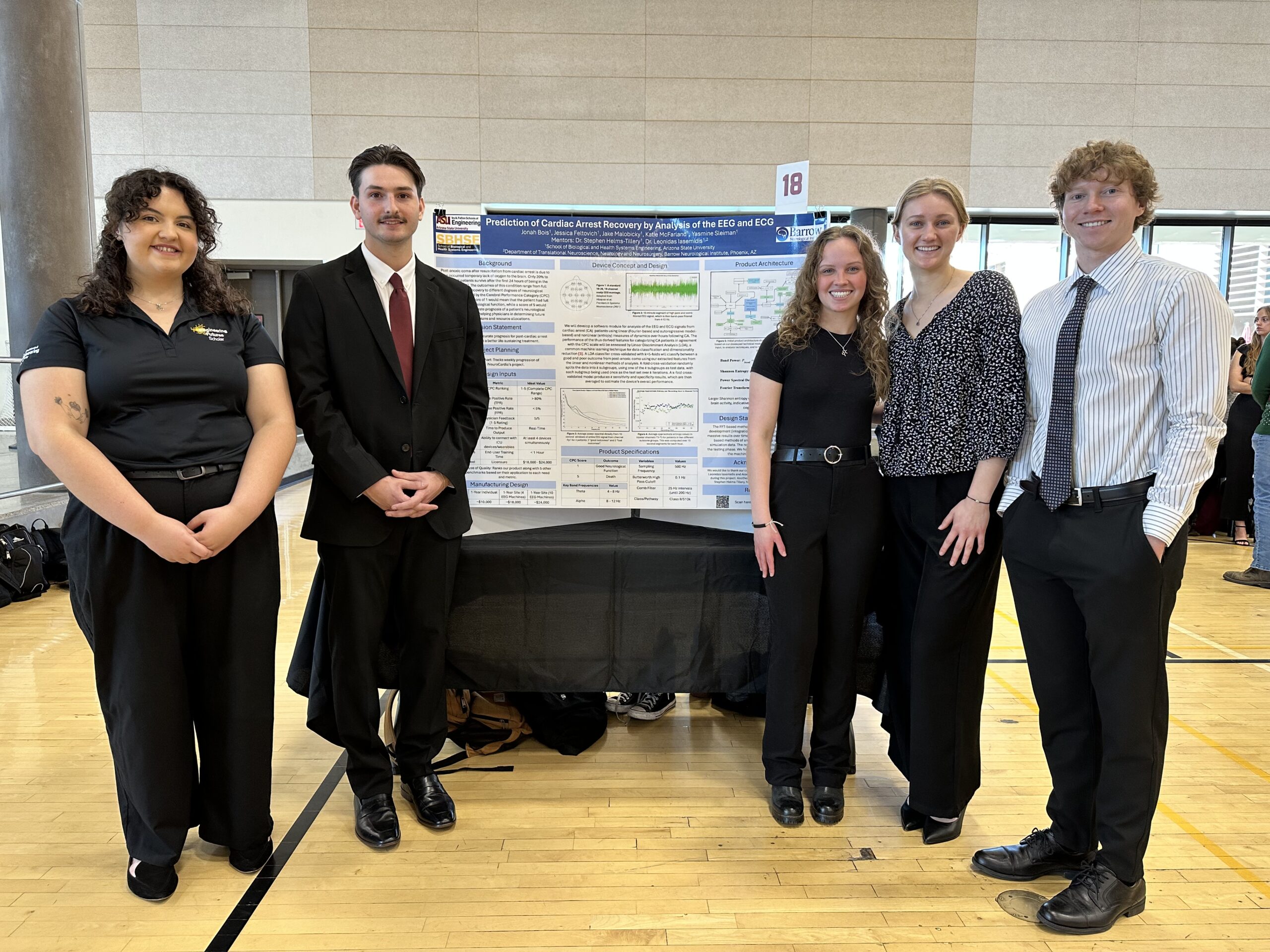
Prediction of Recovery from Cardiac Arrest by Analysis of the EEG and ECG
Biomedical Engineering
Jonah Bois, Jessica Feltovich, Jake Malobicky, Katie McFarland, and Yasmine Sleiman
Abstract
A post-anoxic coma takes place after a person suffers from cardiac arrest and does not receive enough oxygen to the brain. Patients may regain all cognitive function, while others never recover. Once these patients are in the ICU, there are no current medical devices to accurately predict whether or not they will have a neurological recovery. iNeuroCardia has developed a MATLAB based algorithm that is able to determine a patient’s prognosis and predict their cognitive outcome. Our algorithm analyzes Electroencephalogram (EEG) and Electrocardiogram (ECG) data recordings to output a prognosis in the form of a numerical score on a scale of 1 to 5. Through the use of technical models such as Fourier Transform and Generalized Partial Directed Coherence, we are able to analyze specific biomarkers that have proved to be indicative of patient recovery. A data set consisting of 25 patients was used to create and validate the algorithm in order to ensure maximum accuracy and efficiency. Validation was performed by dividing the patients into groups containing 5 patients each to leave out as a training set. The remaining 20 patients were used to train the algorithm. This was repeated 5 times where each patient’s data was only tested once. Our approach achieved 88% accuracy, with the goal of minimizing false negatives and maximizing sensitivity/specificity. This demonstrates a strong potential for reliable, early prognosis in patients with post-anoxic coma.
Video
Research poster
Health
